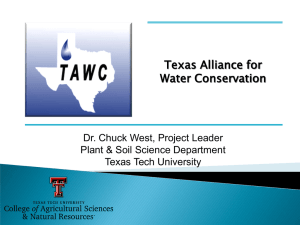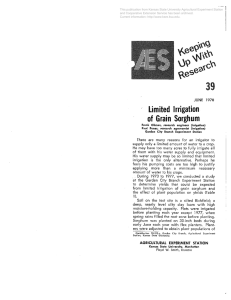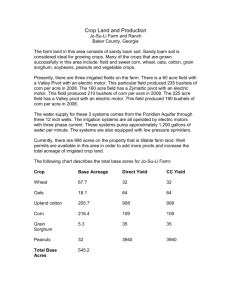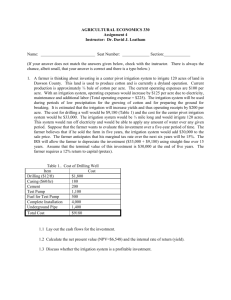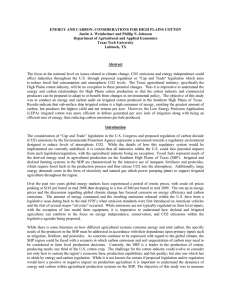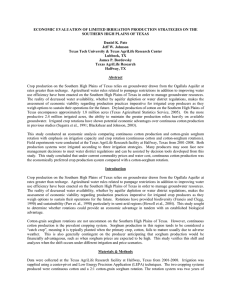When Water Determines Your Success Texas Alliance for Water Conservation
advertisement
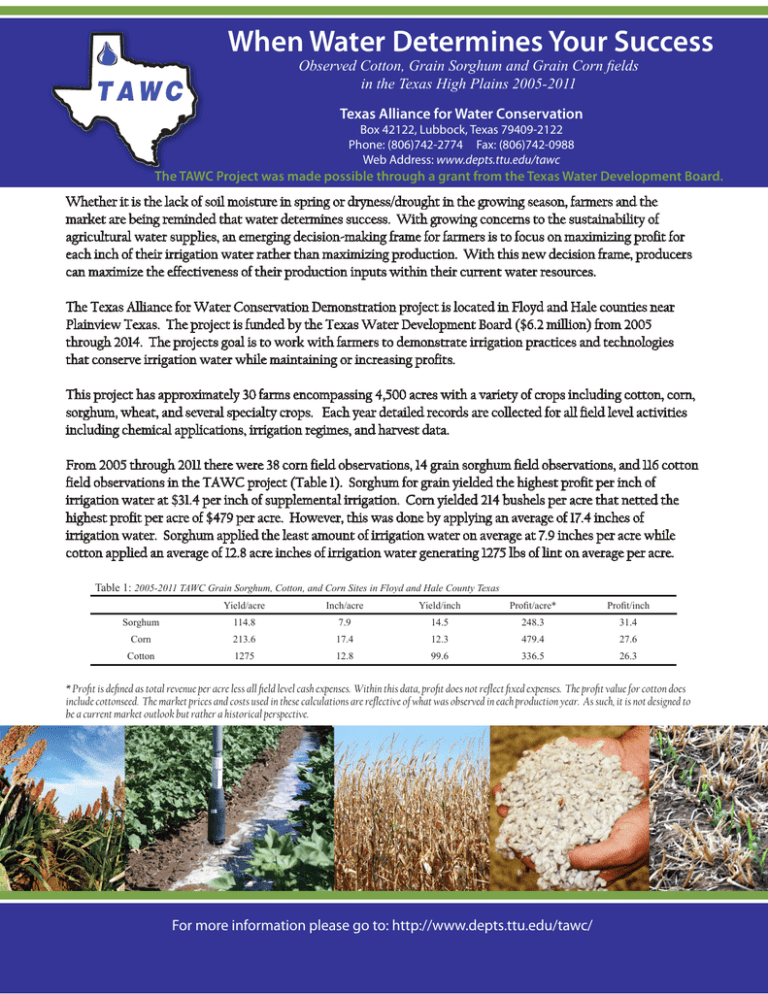
When Water Determines Your Success Observed Cotton, Grain Sorghum and Grain Corn fields in the Texas High Plains 2005-2011 Texas Alliance for Water Conservation Box 42122, Lubbock, Texas 79409-2122 Phone: (806)742-2774 Fax: (806)742-0988 Web Address: www.depts.ttu.edu/tawc The TAWC Project was made possible through a grant from the Texas Water Development Board. Whether it is the lack of soil moisture in spring or dryness/drought in the growing season, farmers and the market are being reminded that water determines success. With growing concerns to the sustainability of agricultural water supplies, an emerging decision-making frame for farmers is to focus on maximizing profit for each inch of their irrigation water rather than maximizing production. With this new decision frame, producers can maximize the effectiveness of their production inputs within their current water resources. The Texas Alliance for Water Conservation Demonstration project is located in Floyd and Hale counties near Plainview Texas. The project is funded by the Texas Water Development Board ($6.2 million) from 2005 through 2014. The projects goal is to work with farmers to demonstrate irrigation practices and technologies that conserve irrigation water while maintaining or increasing profits. This project has approximately 30 farms encompassing 4,500 acres with a variety of crops including cotton, corn, sorghum, wheat, and several specialty crops. Each year detailed records are collected for all field level activities including chemical applications, irrigation regimes, and harvest data. From 2005 through 2011 there were 38 corn field observations, 14 grain sorghum field observations, and 116 cotton field observations in the TAWC project (Table 1). Sorghum for grain yielded the highest profit per inch of irrigation water at $31.4 per inch of supplemental irrigation. Corn yielded 214 bushels per acre that netted the highest profit per acre of $479 per acre. However, this was done by applying an average of 17.4 inches of irrigation water. Sorghum applied the least amount of irrigation water on average at 7.9 inches per acre while cotton applied an average of 12.8 acre inches of irrigation water generating 1275 lbs of lint on average per acre. Table 1: 2005-2011 TAWC Grain Sorghum, Cotton, and Corn Sites in Floyd and Hale County Texas Yield/acre Inch/acre Yield/inch Profit/acre* Profit/inch Sorghum 114.8 7.9 14.5 248.3 31.4 Corn 213.6 17.4 12.3 479.4 27.6 Cotton 1275 12.8 99.6 336.5 26.3 * Profit is defined as total revenue per acre less all field level cash expenses. Within this data, profit does not reflect fixed expenses. The profit value for cotton does include cottonseed. The market prices and costs used in these calculations are reflective of what was observed in each production year. As such, it is not designed to be a current market outlook but rather a historical perspective. For more information please go to: http://www.depts.ttu.edu/tawc/
